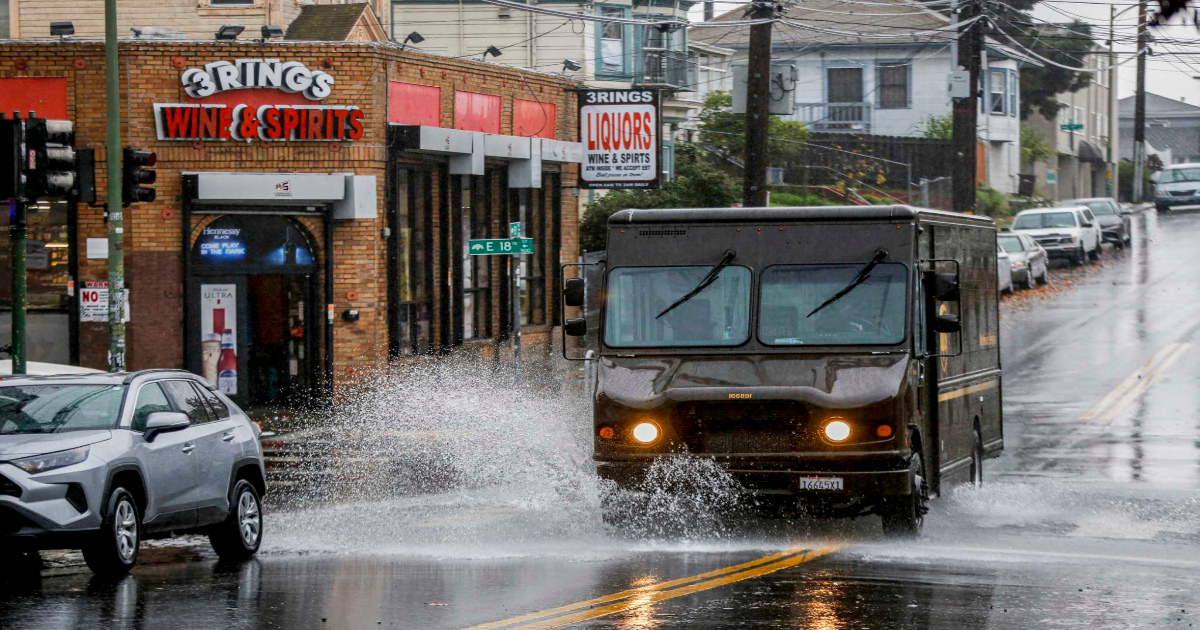A UPS delivery truck drives through a puddle in Oakland. The company announced on Tuesday that it will eliminate 20,000 jobs and close 73 facilities by June, citing economic uncertainty and a significant reduction in business from Amazon, its largest customer.
Brontë Wittpenn/The Chronicle
UPS announced on Tuesday that it will eliminate 20,000 jobs and close 73 facilities by June, citing economic uncertainty and a significant reduction in business from Amazon, its largest customer.
The cuts represent over 4% of the company’s global workforce of roughly 490,000 employees.
The decision follows UPS’s layoff of 12,000 positions last year, and marks the company’s most sweeping restructuring effort in recent years.
Article continues below this ad
“The world has not been faced with such enormous potential impacts to trade in more than 100 years,” said CEO Carol Tomé on the company’s earnings call, referencing global tariffs enacted by the Trump administration. “The macro environment may be uncertain, but with our actions, we will emerge as an even stronger, more nimble UPS.”
UPS expects to save $3.5 billion in 2025 as part of the consolidation plan. It did not disclose which facilities would be closed or which positions would be affected by the layoffs.
“These actions will enable us to expand our U.S. Domestic operating margin and increase profitability,” Brian Dykes, the chief financial officer of UPS said during an earnings call on Tuesday morning.
The announcement follows a renegotiated agreement with Amazon, under which UPS will reduce package volume from the e-commerce giant by more than 50% in the second half of 2026.
“Amazon is our largest customer, but it’s not our most profitable customer,” Tomé said at the time. “Its margin is very dilutive to the U.S. domestic business.”
Article continues below this ad
Despite a 0.7% dip in quarterly revenue to $21.5 billion, adjusted profits rose to $1.7 billion.
A spokesperson for Amazon said, “Due to their operational needs, UPS requested a reduction in volume and we certainly respect their decision. We’ll continue to partner with them and many other carriers to serve our customers.”
UPS declined to update its full-year outlook, citing ongoing macroeconomic volatility.



